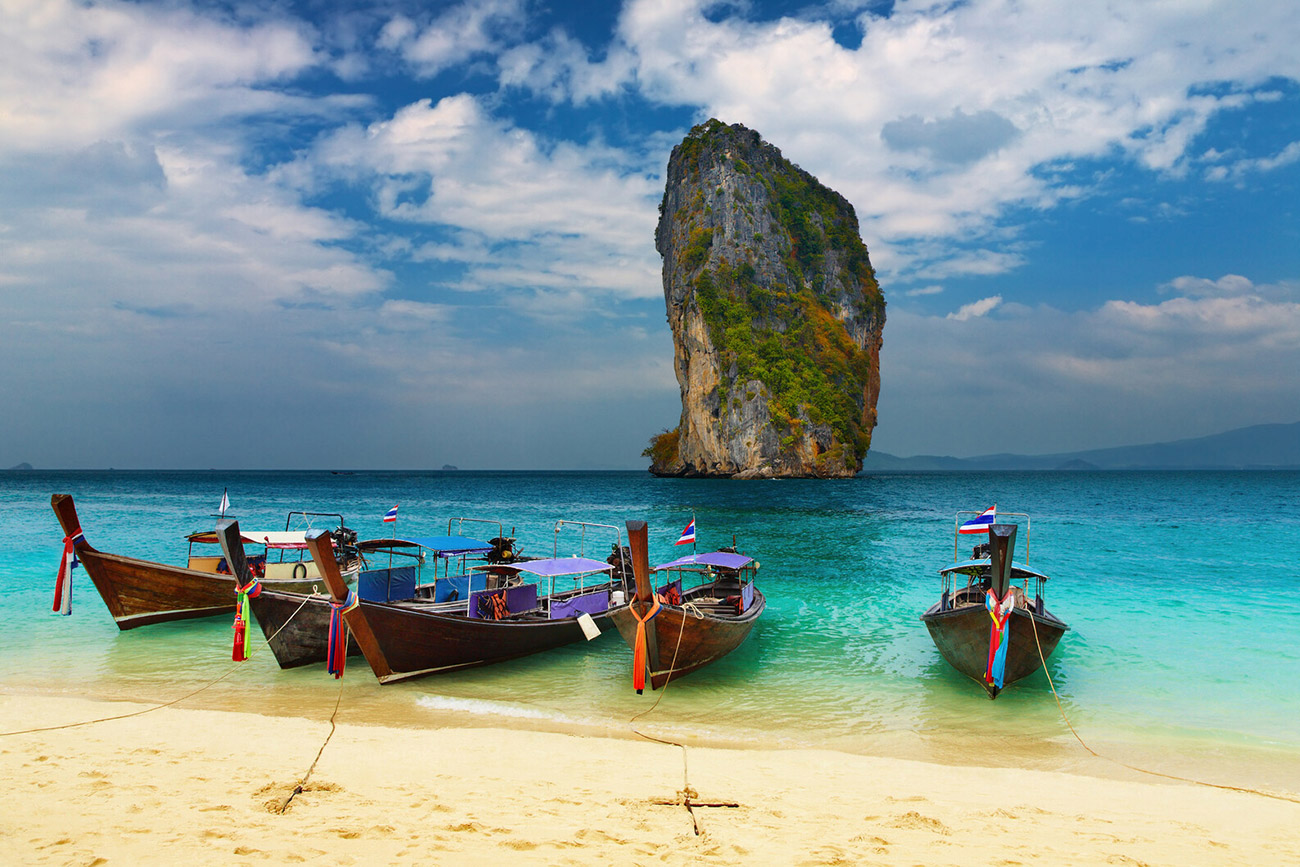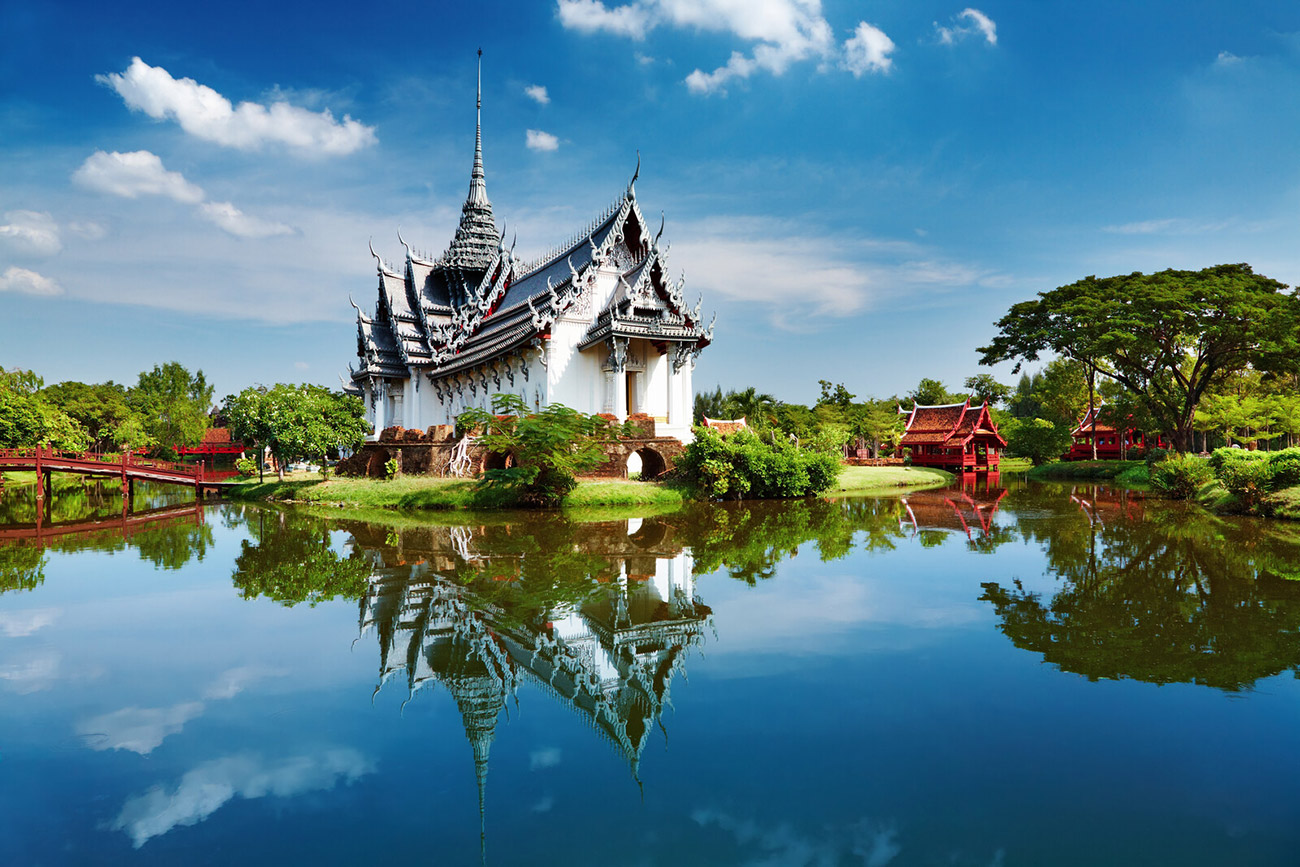Table of contents
Thailand, the tourist destination par excellence in recent decades, still attracts visitors from around the world. The well named country of smiles seduces with its dream beaches, its luxuriant jungle and its sumptuous Buddhist temples.
The diversity of landscapes, the cultural richness, the refined cuisine and the welcoming population are all assets that this kingdom in the heart of Southeast Asia offers.
To leave with peace of mind and make the most of your vacation, follow our ten tips to prepare your trip.

© Can Stock Photo / muha04
1. Find out about the formalities to enter Thailand
Whatever the duration of your stay, you must be in possession of a passport valid for at least six months after the date of entry in the country.
The Thai embassy will give you all the information concerning the formalities in force according to your nationality and your country of origin. In this critical period of COVID 19, it is also very important to know the legislation at the time of departure on vaccination and PCR tests. Some obligations have been lifted recently, but may become relevant again.
You should know that since November 2021, and until further notice, the Thai government has introduced the Thailand pass. It is an official authorization granted by the immigration services and intended for any person wishing to travel to the country by plane, boat or land. It is mandatory to certify the vaccination status of each entrant.
2. Apply for a visa if necessary
Another formality, even outside the COVID period: the visa. If you are an US citizen, you will not be asked for a visa for stays of less than 30 days. However, regulations often change and it is better to check with the embassy to avoid unpleasant surprises upon arrival.
For stays longer than 30 days, there are several types of visa for Thailand: the TR (stay up to 3 months), the STV (9 months), the METV (6 months with multiple entries).
The application is made on the official website of the Thai Ministry of Foreign Affairs and the file must be submitted at the embassy in US. Specialized websites can take care of the procedures for you.
3. Choose the right time to travel
Thailand has a tropical climate that varies significantly by region. You may be disappointed if you fall in the monsoon season. Even if the heat is still present, the heavy rains make the atmosphere heavy, even suffocating. Avoid, in general, the rainy season which extends from May to November with a peak from September to the end of October.
The dry season, from December to April, is the best time to visit Thailand. Temperatures are around 91°F, reaching 104°F in March-April in the center and east of the country.
The best time to fly to Thailand is between mid-November and mid-February, all provinces included.

Sanphet prasat palace, old city, Bangkok, Thailand – © Can Stock Photo / muha04
4. Find the right flight
Airline tickets are a big part of the travel budget. It’s worth comparing airlines, as they all take turns offering special deals and promotions. Finding cheap fares is possible with time and patience. Flight comparison sites such as Google Flight will help you in your search.
Ticket prices vary depending on the day of the week or the time of year. Being flexible on dates is the best way to travel cheaper. This is true for Thailand as for any destination.
5. Get vaccinated
Don’t worry, Thailand is not a risky country. In fact, no vaccination is required. However, some vaccines or booster shots are recommended, as for any stay in the tropics. These include hepatitis A and B, typhoid fever, DTPP, and possibly rabies and Japanese encephalitis.
Needless to say, vaccination against COVID 19 is preferable.
6. Prevent health problems
Before you leave, you may want to consult your dentist or doctor. The Thai health care system is quite good, but it would be a shame to have to go to the hospital during your vacation. As far as medication is concerned, only take what you need. Pharmacies are numerous and you can find almost the same products as in the US.
Beware if you are taking a treatment, the customs officers may require prescriptions. Indeed, some medicines are prohibited to import or subject to declaration or prior authorization rules.
Once you arrive, precautions should be taken, including for healthy people: only drink bottled water, never tap water, and do not eat raw food.
7. Protect yourself
It is of course essential to protect yourself from the sun with a suitable cream, a hat and sunglasses. On the beach, the sand and water reflect even more harmful rays. Expose yourself gradually and not during the hottest hours.
Also protect yourself from mosquitoes, vectors of serious diseases such as dengue and chikungunya, which cause high fevers. Pack effective repellents in your luggage, in accordance with the recommendations of the French Ministry of Health. If you intend to stay in the forest, you can impregnate your clothes with these repellents and bring a mosquito net.
8. Get a travel insurance
Most credit cards cover travels abroad, such as the American Express card, but the reimbursement limits are often insufficient for basic cards. Coverage also includes assistance and, depending on the card, trip modification and cancellation, luggage and liability.
This does not prevent you from taking out additional international insurance for better coverage. This type of insurance guarantees the coverage of medical and hospital expenses as well as repatriation in case of problems.
In any case, choose an insurance that corresponds to your situation and to what you plan to do (farniente, trek…).
9. Control your budget
When you travel, you often need to use your bank card, which is much more practical than cash. On the other hand, when you come back home, you are in for a bad surprise: the fees charged by banks! Indeed, the commissions are often exorbitant, especially for withdrawals at ATMs. It is better to withdraw a large sum at once than to make several small withdrawals.
Payments by card are accepted almost everywhere. However, it is useful to always have some change with you. The currency unit is the baht. The exchange is done without problem, and especially without commission, in banks or exchange offices. The rates at the airport are not advantageous. It is better to go to the city and to the most touristic places.
For your accommodation, take the time to read carefully the offers to choose the right hotel and avoid unpleasant surprises once there. Finally, remember to take some travel accessories with you so that you don’t have to buy any on the spot!
10. Be aware of local customs
The Thai population is 94% Buddhist. Buddhism is therefore an important part of the social life of this kingdom. There are a few traditions that should be respected:
- remove your shoes in the temples,
- do not hold the door when entering or leaving a place,
- not to touch the skull of a person,
- do not touch someone with your foot,
- in the bus, do not sit in the front (the seats are reserved for the monks),
- always remain modest (no bathing suit in the streets, no kissing in public),
- do not take a selfie with a Buddha statue or point at it,
- stand up when the national anthem is played,
- and last but not least, never joke about the monarchy or criticize the king.
